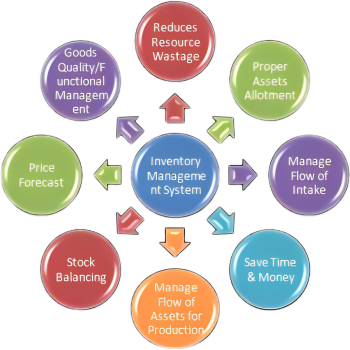What is ERP Software?
Enterprise resource planning (ERP) is a type of software system that helps organisations automate and manage core business processes for optimal performance. ERP software coordinates the flow of data between a company’s business processes, providing a single source of truth and streamlining operations across the enterprise. It’s capable of linking a company’s financials, supply chain, operations, commerce, reporting, manufacturing and human resources activities on one platform.
Most companies have a finance and operational system in place, but siloed systems can’t go beyond everyday business processes or help with future business growth. As companies expand and their needs change, their systems should keep up with them. In this article, you’ll learn what ERP is and why having software in place that keeps up with your needs can help run a more agile and efficient business.

Enterprise resource planning (ERP) is a type of software system that helps organisations automate and manage core business processes for optimal performance. ERP software coordinates the flow of data between a company’s business processes, providing a single source of truth and streamlining operations across the enterprise.
Learn MoreWhy is ERP important for business?
While there’s no all-up solution for every business process, ERP technology is getting better and better at bringing processes together. After your processes, systems, and data are connected, you’ll get the business intelligence, acceleration, and adaptability you need to start optimising your operations.
- Here are three ways an ERP system can improve your business:
- Drive optimal performance. With solutions that use AI, you’ll access insights that enhance your decision making and reveal ways to improve operational performance going forward.
- Accelerate operational impact. By connecting processes and data, you’ll bring more visibility and flexibility to employees, helping them take action quickly and deliver more value across the business.
- Ensure business agility. Many ERP solutions are built to adapt to your needs and grow with you, helping you proactively prepare for—and readily respond to—any operational disruption or market change.
What business functions can be optimised with ERP?
An ERP system can cover many core functions across your organisation—helping break down the barriers between the front office and back office while offering the ability to adapt your solution to new business priorities. Some of the key business functions include:

Commerce
Today’s retailers face many challenges, and an ERP system can deliver a complete, omnichannel commerce solution that unifies back-office, in-store, and digital experiences. Customers get a more personalised and seamless shopping experience through AI recommendations, while retailers increase employee productivity, help reduce fraud, and grow their business.

Finance
Modern ERP increases profitability while driving compliance. It offers dashboards and AI-driven insights that give an overview of your finances to help you tap into the real-time information anytime and anywhere. It should also cut down on entering information manually by automating daily tasks and include tracking abilities that help with your business’s regulatory compliance.

Human Resource
Modern solutions offer ways to manage company data and streamline employee management tasks like payroll, hiring, and other duties. You’ll be in a better position to help retain, recruit, and empower employees while also tracking employee performance and to help you identify HR problems before they happen.

Manufacturing
This ERP capability improves business communication, automates daily processes through robotic process automation, and offers manufacturers the ability to fulfil customer needs and manage resources by accessing real-time data. It also optimises project management, cost management, and production planning.

Supply Chain
If your company is still entering information by hand and trying to track down stock in your warehouse, you can save time and money by automating these processes with ERP. Modern supply chain solutions also offer dashboards, business intelligence, and even Internet of Things (IoT) technology to help you get a handle on your stock management.